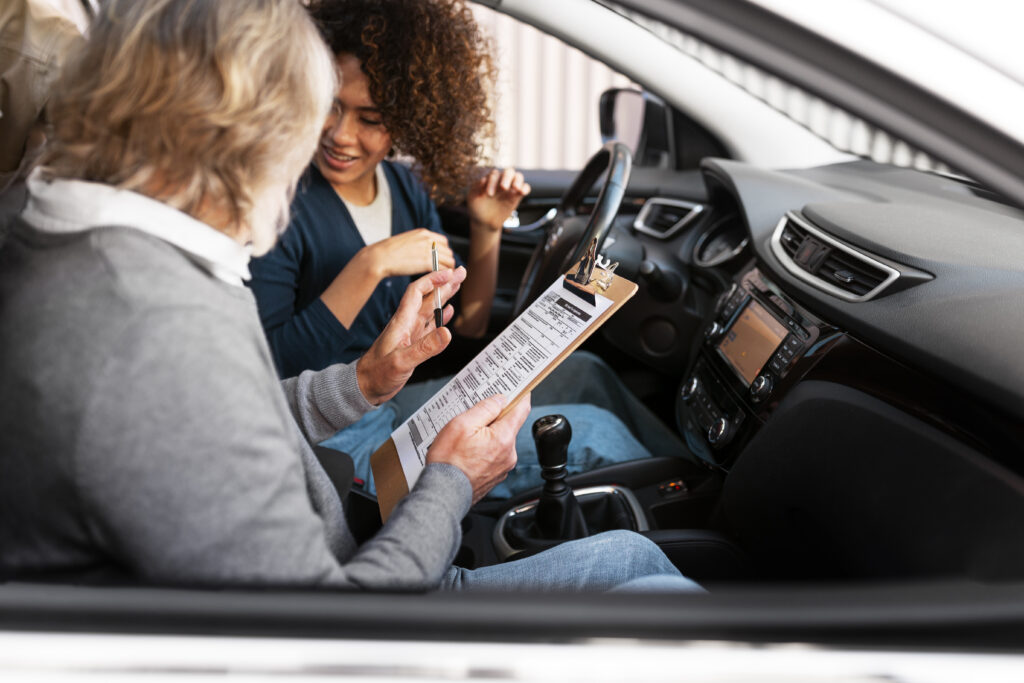Planning to register your vehicle overseas? Your car title needs an apostille – a fact many vehicle owners overlook. Foreign authorities won’t let your vehicle cross their borders without this significant document.
Reality is more complex than it appears. Each state in the US has unique apostille rules for automotive paperwork. Countries like the United Kingdom and Italy follow different document standards. Some nations accept notarized copies, while others demand authentic car title apostille.
Our team has helped vehicle owners direct these requirements since 2004. The process demands attention to detail. Your US vehicle title registration documents need proper signatures and notarization. This can happen in the United States or at a U.S. Embassy.
This piece outlines the vital steps to get your car title apostille. You’ll learn about country-specific requirements and ways to avoid common issues that could delay your international vehicle registration.
Car Title Apostille: When and Why You Need It

Car title apostille becomes necessary in several specific scenarios. Knowing the right time to get this authentication is vital for international vehicle transactions or relocations.
For Selling Your Vehicle Internationally
Selling your vehicle to a buyer in another country requires meeting with a local notary public who will witness you signing the original title document. This notarization serves as the mandatory first step in the apostille process. The document can then be submitted for apostille certification.
For Relocating With Your Vehicle
Expatriates planning to take their vehicles abroad need slightly different documentation. You’ll need to create a color copy of your title and get it certified by a notary public. The process requires you to attest your vehicle ownership and confirm that the copy matches the original title in your possession.
For Registering Your Vehicle in a Foreign Country
Your car’s registration in a foreign country requires proof of either:
- Your vehicle ownership and intended use abroad, or
- The seller’s transfer of ownership to you and your need to register it in the foreign country
Documentation Requirements
- Proper signatures
- Notarization within the United States or at a U.S. Embassy
Americans currently outside the U.S. should visit their nearest U.S. Embassy for notarization services. These services typically need appointments.
The apostille requirement applies specifically to documents used in countries that signed the 1961 Hague Convention Treaty. Countries outside this treaty require an authentication certificate instead.
Each U.S. state maintains unique apostille requirements for automotive documentation. You must follow the specific procedures of the state that issued your original title. Trying to handle this process without professional help can get pricey and lead to paperwork rejection.
Country-Specific Apostille Requirements
Successful international vehicle registration depends on understanding each country’s apostille requirements. The process changes substantially based on your destination country’s participation in the 1961 Hague Convention.
For Hague Convention Countries, an apostille certificate serves as the only authentication needed. 117 countries accept apostilles, and this includes most European member states. China (effective November 7, 2023), Canada (January 11, 2024), and Saudi Arabia (December 7, 2022) are the newest additions to this list.
European Requirements state that countries like Italy need vehicle titles with an apostille and an Italian translation. Your apostilled title might also need technical specifications from the vehicle manufacturer.
Among Asian Countries, all but one of these twelve nations recognize apostilles, including Japan, India, and South Korea. China’s recent entry into the Convention has made the legalization process easier and cut documentation processing time by about 90%.
Non-Convention Countries use a more complex authentication called consular legalization. This process needs certification from:
- The corresponding ministry
- The Ministry of Foreign Affairs
- The destination country’s consulate
Consular legalization works only in the specific country whose consulate processed your document, unlike apostilles.
The United States Process differs by state. Maryland requires vehicle titles that a Maryland notary has notarized, authenticated by the county clerk where the notary works, then sent to the Secretary of State in Annapolis.
Saudi Arabia now accepts U.S. documents with apostilles as a new signatory. The U.S. Department of State doesn’t need to provide additional authentication. This change has made the process much simpler.
Note that apostilles only confirm the authenticity of signatures, seals, and the issuing official’s authority—not your document’s content.
Cost & Time Comparison: DIY vs. Oregon Apostille Hub Professional Services
| Service Aspect | DIY Process | Oregon Apostille Hub Professional Service | Benefit of Professional Service |
| Processing Time | 5+ weeks (regular mail) | Expedited service available | Save weeks of waiting time |
| Document Review | No professional review | Expert document pre-verification | Prevents costly rejections and delays |
| Error Correction | Must restart process if rejected | Handled proactively by experts | Eliminates repeat submissions |
| Notarization Services | Must find separate notary | Coordinated notary services | One-stop solution |
| State-Specific Requirements | Must research individually | Expert knowledge of all state requirements | Prevents common compliance errors |
| Lien Complications | Must resolve independently | Professional guidance on lien solutions | Streamlines complex situations |
| Country-Specific Requirements | Must research destination country rules | Expert knowledge of international requirements | Ensures international acceptance |
| Translation Services | Must find separate translator | Coordinated translation services | Seamless document preparation |
| Consular Legalization | Complex multi-step process | Managed completely by professionals | Eliminates bureaucratic complexity |
| Document Tracking | Limited tracking options | Full process tracking | Peace of mind |
Common Challenges and Solutions

Getting an car title apostille comes with several roadblocks that need careful planning. A good grasp of these challenges beforehand helps make the process run smoothly.
Lien-Related Complications
The biggest problem shows up when your vehicle has an outstanding loan. The title usually shows a lienholder who keeps the document until you pay off the loan fully. This makes international transfers tough because you don’t have the actual title in hand. You must take one of these steps before getting an apostille:
- Pay the loan in full and get a lien release
- Get written permission from the lienholder to transfer the title
The title cannot move forward with apostille until these financial matters are settled.
Document Authentication Complexities
The apostille process needs specific technical requirements. To cite an instance, California needs notarization before apostille certification. The Secretary of State office does not provide notary services. This means you need to get proper notarization somewhere else before submitting your papers.
On top of that, each state follows its own rules. Texas won’t put apostilles directly on vehicle titles. Texas residents must ask for a special “certificate letter” from the Texas DMV with an official’s signature and seal before they can get apostille certification.
Processing Delays
Regular mail requests for apostille certification take five or more weeks to process. Some places offer faster service if you visit in person, but they limit submissions to 15 documents per customer each day.
Professional Assistance Benefits
These complexities lead many people to use professional apostille services. As one service provider notes, “Obtaining an apostille can be a complicated process… Untrained persons… are more likely to make errors, which will delay the processing of your documents for days, weeks, or even months.”
Professional document review services are a great way to get your paperwork checked before submission. This can save much time and stop the process from getting pricey due to delays.
Conclusion
Getting an car title apostille is a vital step when dealing with international vehicle transactions. The process can get challenging, but you can succeed by knowing each country’s requirements and having the right documents ready.
The key is to tackle complications early. This includes dealing with liens and meeting your state’s specific rules before things get pricey. Different countries have their own document standards, so careful preparation matters before you start the apostille process.
It’s worth mentioning that apostille rules keep changing. Recent examples include China and Canada joining the Hague Convention. You’ll need to stay current with your destination country’s regulations to get your vehicle documents processed smoothly.
Complex requirements can be tricky to handle alone. Expert help can make a big difference. Your car title needs proper apostille certification for legal recognition abroad, whether you’re moving permanently or selling your vehicle internationally.
Need help getting your car title apostille in Oregon? Let Oregon Apostille Hub handle the paperwork and ensure your documents are accepted overseas—fast, accurate, and stress-free.
Contact us today to get started!

